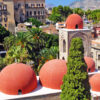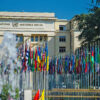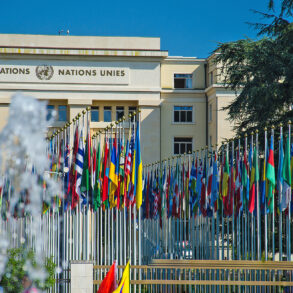Bright and early, I set out from my hotel in the middling Kurdish-Turkish town of Midyat in search of the bus station where the plan was to take a dolmuş – a minibus share taxi-to the village of Yenilmez, the village of the Clans.
Cows were being herded along a dawn street, leading to the dusty otogar where I was told there was, in fact, no bus to Yenilmez. It was an inauspicious start. Perhaps Hammed Khamis was right when he urged me not to go to Yenilmez. They wouldn’t understand you, he said. But it was too late; I had already travelled 1,500 kilometres from Istanbul to Turkey’s Kurdish south-east, hoping for a vague insight.
***
In Germany everyone knew the “Clans” – erroneously labelled “arabische Großfamilien” – Arabic extended families. They consisted of hundreds of individuals who were all related to each other in some way and were, according to the German media, involved in all manner of criminal activities, from protection rackets, drugs to prostitution, mainly in Berlin and in North Rhein Westphalia.
Some of the crimes were spectacularly brazen, like the famous heist of a 100-kilogram, million dollar “Big Maple Leaf” gold coin from the Bode Museum in Berlin in 2017, attributed to members of the Remmo clan.
For a while hardly a week went by in Berlin when there was no lurid trumped up BZ headline reporting on the Remmos, the Abou Chakars, etc., mentioning ill-gotten gains, golden credit cards, Breitlings and limos. Did German journalists, one wondered, envy the clans in some way?
They were called “a threat to German civil society”. According to the German media they controlled whole streets in Berlin and could mobilize hundreds of fighters in a matter of minutes. Their very names were enough to strike fear in the hearts of rivals. Even pre-pubescent mini-clan members were reported to bully and blackmail fellow pupils into submission in primary schools in Berlin. The clans existed above the law, they said, consisted of a “parallel society”, evading, and ignoring state institutions. In the hyperbolic language of Berlin tabloid journalism, it was stated that there were “quarters beyond hope in the social-political sense of an enlightened majority society”. In the eyes of North Rhein-Wesphalia interior minister, Herbert Reul, clan activities represented “a frontal attack on the rule of law in Germany”.
“They don’t accept German norms and values,” it was written in Die Macht der Clans, a Spiegel best seller which promised to tell all about the Arabic criminal networks in Berlin. Instead, the authors only had recourse to dry as dust police and court records, never managing to come close to clan members, winning their trust to secure interviews and thus fleshing out the usual stereotypes. The description of clan members remained two-dimensional, clan members rendered as cut-out bogeymen, devoid of detail.
It wasn’t as with the Italian mafia in America. There was not glamour, not mythos, no mystique. No Robert de Niro or Al Pacino to play leading roles. To be sure, there had been a couple television series like 4 Blocks and Dogs of Berlin, which attempted to render the life of the clans dramatically, but these shows trafficked so heavily in ethnic cliches and banal representations, that in the words of Kubilay Sarikaya, co-director of Spandau crime-drama, Familiye, it was as through some white-bread German screenwriter with a privileged upbringing, had sat down in some hip Friedrichshain café with a pen in hand and tried to imagine his way into a world he knew nothing about.
I for my part, had always wanted to interview some of these notorious clan members, not because I admired them, but because I felt they hadn’t been given a square deal. Predictably, they were very wary of the media, which had never given them a fair shake. They remained hidden, elusive, only willing to talk at the prospect of ridiculously inflated sums of money.
That was until one day – through a mosque connection – I got to know a very interesting character, a so-called “clan member,“ from the same Mhallami ethnic group as the Remmos and Abou-Chakers, and going by the name of Hammed Khamis. Khamis, however, was a bit of a lone wolf. Very early on he had taken to a life of crime as a youth upon arrival in Germany, had some spectacular success as a burglar netting item valued in six figures, was never caught, and then decided to go straight, became a journalist and book author and frequent guest on talk shows. Giving inspirational talks at prisons and youth prisons, where today he tried to put cons on the right path. He too usually took money for his interviews. But for me – for whatever reason – he would make an exception.
One day I called Hammed up and expressed a wish to arrange an interview for the following week. This wasn’t plainly how Hammed operated. He made his plans. Fair enough.
Weeks turned into months, my interest in the clans waned and I forgot all about Hammed. Till I started a job researching TV documentaries for a small media company that did work for RTL and other TV stations.
The segment was called Ohne Filter, it aired every Monday on RTL at one in the morning, and basically, they took an urban microcosm somewhere in Germany – they had done Kotti and Frankfurt’s Bahnhof Viertel, – following the lives of three local protagonists in their private quests, till at the very end they are brought together to exchange experiences.
According to my boss, they were interested in doing a piece on Sonnenallee. I immediately thought of Hammed. Perhaps he could put me onto a couple local characters.
I arranged to meet Hammed in Wedding, Leopoldplatz. There I was to mysteriously call him again to get more details where to meet. Ultimately, we agreed upon a bar on Groningerstraße, but as soon as I showed up in this typical beer-sodden Berliner Eckkneipe, Hammed, dressed casually in T-shirt, jeans and trainers and a baseball cap, took me by the arm and guided me outside.
“Let’s go somewhere quieter,” he suggested, and led me down the street into a Sportwettladen, the kind of dodgy place with fruit machines in the corner, where Berlin Ausländer squander away their hard-earned wages. Hammed ordered a Turkish tea. I did likewise and we took a seat at a table in the back, under a couple of big screens broadcasting live football matches.
Hammed explained to me the background on the clans. To begin with they weren’t Arabs at all but Kurdish Arabs of some sort, belonging to an ethnic group called the Mhallami, who together with others living in a constellation of villages between Mardin and Midyat in south-east Turkey, emigrated en masse to Beirut in the eighties before the war in Lebanon, when Beirut was the “Paris of the East”, and business was thriving. Then civil war broke out and the Kurdish Arabs from Mardin picked up and left once more this time to Germany, to Berlin, where they received asylum status.
The problem was two-fold. To begin with the Kurdish Arabs from Turkey via Beirut only got “Duldung” status, a legal term meaning they were tolerated in Germany, but not permitted to work. This posed a big problem for a group of people who had been hustling most of their lives, trying to make a buck, first in Turkey and then in Beirut. The result was that they turned to illicit means to earn their money, a fact which didn’t endear them to the German public, most of whom weren’t all that favourably redisposed to like Turks or Arabs in the first place.
The other problem was that the Kurdish Arabs adhered to rather archaic clan structures. Blood feuds lasted many generations and one’s family honour was to be protected at all costs. This, together with their adeptness at working the black market meant that they built up quasi mafia networks in Berlin and North Rhine Westphalia, rather like the Sicilian mafia in New York. However, the difference was that while the Americans tended to romanticize their Italian gangsters via films and books and tv shows, the Kurdish-Arabs had been indemnified in a totally racist way by the German media, whonever bothered to examine the root of the problem, or shed light on who these people were, displaying a striking lack of curiosity.
We sipped our tea and Hammed told me about the razzias – the police round-ups on Sonnenallee.
“It’s racism,” said Hammed. “Pure harassment. Do they think that gangsters live in Neukölln? The police know everything. They are just doing it so that they can say to the public, ‘See, we’re doing something.’ It’s all bullshit.”
Hammed told me the story of a girl who came from one of the families frequently mentioned on TV, like the Abou-Chakers or the Remmos. She walked into the bank one day and said she wanted to open an account. The clerk took one look at her name and refused her outright.
“What’s up with that?” exclaimed Hammed. “You are stigmatized just because of this name. I get so angry when I hear these stories. It’s pure racism. 300 officers do a razzia one day on a café on Sonnenallee and they find – what – fifty kilos of shisha tobacco that can’t be accounted for. Is that all? Do you know how much these police operations cost?”
Well, I had gotten Hammed’s story and his take on the clan-hysteria that was going on in Berlin and in other parts of Germany. It was enough to make a story. But the icing on the cake would be to visit the Turkish-Kurdish village where Hammed and other clan members hailed from, just to get the full picture – the picture that the German media, it seemed, couldn’t bother to tell.
***
This past August, I found myself again in south-east Turkey, driving around between Adana, Gaziantep, and Urfa. I figured while I was in the general neighbourhood, I would make a jaunt out to Mardin and its environs and pay a visit to Hammed’s village.
I contacted Hammed via Messenger and asked him for the name of the village. At first Hammed wouldn’t tell me. Why? I wondered.
“99 per cent of the stuff that is written about my people is racist bullshit,” he said.
But, I stressed, that wasn’t what I was about; as he should know by now, I didn’t write BZ style stories. In the end, Hammed eased up a bit and disclosed the name of the village. It was called Yenilmez, about forty-five minutes from Midyat. In the summer months, many Berliners went back there. It was the end of August now. Most of the Berliners had gone home.
Yenilmez was a one-horse town with not a single shop around, on account of the inhabitants growing all their own vegetables and raising their own livestock. Most of the houses were poor mud-brick structures, some of them a hundred years old, but amidst all this poverty there were some swank houses built by “Alemancis” — “Germans” – what one called the people who had gone to live and work in Germany and had built their marble-clad holiday homes here. The village was dead, and all the “Berliners” already come and gone. So much for my plans of entering a tea house and engaging some of the locals in talk. I really thought I had made a mistake coming here when my taxi driver deposited me at a local military checkpoint for questioning.
Evidently, I had arrived in a hotbed of PKK activity. The soldiers were wary of strangers. For all they knew I was a spy working for the PKK. Turkey was crawling with American spies, they said. I struck up a conversation with a part-time soldier named Mehmet, who was from Berlin (Tiergarten), wore military greens, camo trousers and boots, but his shirt was irregular. I was sat down at the table and given a handful of pistachio nuts. They were fresh off the tree and still had their fruity covering. When you ate them, they were chewy, rather than brittle.
After being told by the Berliner that I must not under any circumstances take photos, I decided to go off and get an ice cream, oddly enough, the only thing you could buy in the village. When I came back there were more soldiers waiting for me, along with the local komandant, a man in a white polo shirt and blue slacks, who sat me down and started to grill me relentlessly.
The soldiers couldn’t quite figure me out— an American from Germany traveling alone in a “hot spot” of PKK activity with very limited Turkish abilities.
The komandant demanded to see my notebook. I warned him that I had trouble myself reading my jottings, mostly done on bumpy bus rides. He rifled through the pages until he found something that ring a bell.
“What’s this, eh?…Müslüm Gürses?”
The soldiers laughed. Müslüm Gürses was a slightly démodé arabesk singer. The idea of an American liking Müslüm Baba made the situation even more incongruous.
So I showed them some of my Exberliner stories, and mentioned Hammed’s name. It turned out the family was well known. But the interrogation went on and would have continued till late if an “Almanci” who had spent fourteen years in Berlin hadn’t shown up.
***
Finally, I was able to explain the business of the “clans” and how I wished to write a story for a Berlin magazine about them and where they came from. The Berliner in turn relayed to the komandant the whole clan story, explaining that I was trying to write a story casting the local people in a good light. Some calls were put through to Hammed and my wife. In the end, it was determined that I meant no harm. The komandant ordered a grand repast of lamb and bulgur in my honor to be brought and asked me if I wanted some photos made of me together with the soldiers, me posed with a flak jacket on and Kalashnikov, me posed thus armed on the street leading into the village. Later I made the mistake of posting the pictures on Facebook, which shocked some friends and family back home, who felt I had fallen in with some dodgy terrorists. Don’t worry ma, I wanted to say, it’s only me and the Turkish Jandarma!
In the end I found no great scoop. I had travelled to the very edge of Turkey, and yet nothing tremendously newsworthy had been turned up in this one minaret town. But what I did get was a sense of the land, which somehow brought me closer to the infamous clans. Most of all, what appealed to me was the stark contrast between this barren and sunbaked country in the middle of nowhere and the urbane metropolis of Berlin. Seeing where the clans came from one knew that whatever happened in Berlin, however miserable the German authorities would make their lives – there was no going back.











